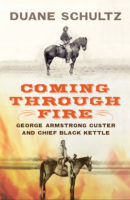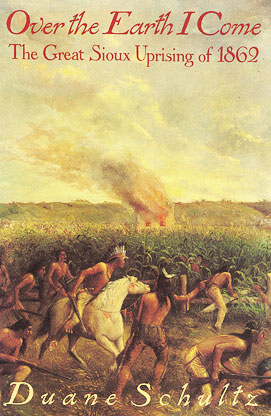Over the Earth I Come: The Great Sioux Uprising of 1862
St. Martin’s Press, 1992
December 26, 1862. On the day after Christmas in Mankato, Minnesota, 38 Sioux Indians were hanged, by order of President Abraham Lincoln. It stands today as the largest mass execution in US history. In Over the Earth I Come, Schultz brilliantly retells one of American’s most violent and bloody events, the Great Sioux Uprising of 1862. It recounts a part of American history that should never be forgotten.
In less than one week in August, the Sioux went on a rampage throughout Minnesota that left hundreds of settlers dead. Whole families were burned alive in their farmhouses. Children were nailed to barn doors, girls raped by a dozen braves and hacked to pieces, babies dismembered in front of their horrified mothers. Nearly 40,000 settlers became refugees, and for one brief moment in time, the Sioux people were restored to their ancestral land and reclaimed their pride and dignity.
This well-researched and insightful narrative uncovers the events and injustices that sparked the uprising. The Minnesota Sioux, perceived as a peaceful tribe, harbored intense resentment over the lands appropriated by Whites, the disappearance of the buffalo, repeatedly broken treaties, and lies and deceptions of the US government and its representatives. That summer, delayed annuity payments from land treaties, and the refusal of traders to release food to the starving Indians, sparked the series of wars between the Sioux and the settlers.
Reviews
Skillfully interwoven from personal local histories and contemporary accounts; an intimate view of a desperation and bloodshed on the Great Plains that is as poignant as it is tragic
History that reads like a novel
Schultz is a master at using exciting, informative prose and authoritative sources to reconstruct the frontier conflict
An even-handed distribution of blame and a fine description of the events in this little-remembered bit of our history
Combines a gripping story with an explanation of the underlying causes. Schultz convincingly conveys the fears and frustrations on both sides
Schultz’s capably researched and tautly written Over the Earth I Come reminds us that responsibility for the abominable events that occurred during the Indian wars cut across ethnic boundaries. He uses a journalistic narrative style to bring to life the great Sioux uprising and successfully resists the pressures of political correctness. He offers vivid evidence that barbarity and treachery are qualities that characterize all groups, tribes, and nations
More Civil War Books by Duane Schultz
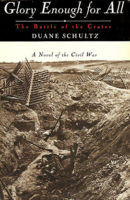
Glory Enough for All: The Battle of the Crater: A Novel of the Civil War
St. Martin’s Press, 1993
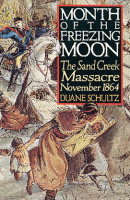
Month of the Freezing Moon: The Sand Creek Massacre, November 1864
St. Martin’s Press, 1990

Quantrill’s War: The Life and Times of William Clarke Quantrill, 1837-1865
St. Martin’s Press, 1996

The Dahlgren Affair: Terror and Conspiracy in the Civil War
W. W. Norton, 1998

The Most Glorious Fourth: Vicksburg and Gettysburg, July 4th, 1863
W. W. Norton, 2002
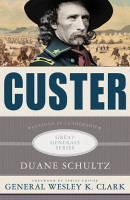
George Armstrong Custer
Palgrave Macmillan, 2010

The Fate of War: Fredericksburg, 1862
Westholme Publishing
